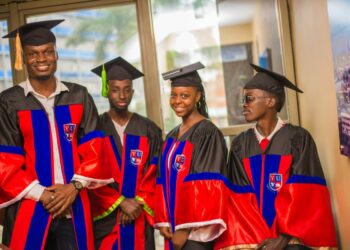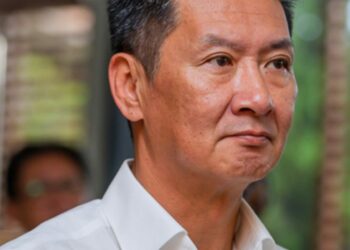By Noah Tinako
Kampala’s traffic nightmare will soon be history as President Yoweri Museveni has given the green light to a multibillion rapid public transport system. In a letter to Finance Minister Matia Kasaija, the President directed the acquisition of 980 buses from Ashok Leyland of India.
“I met with the representatives from Hinduja Group in regard with the supply of 980 Ashok Leyland buses to Uganda through a secured funding under Exim Bank NEIA. I agreed that Ashok Leyland supplies 980 buses and establishes an assembling plant for trucks/buses in Uganda with a minimum of 200 units per month for the supply of vehicles beyond the initial 980 buses,” the President’s letter dated 31 August 2018 reads in part.
It adds that “Ashok Leyland buses only use the arteries of cross-city transport and leave the feeder branches to the locals for some years.” This means that taxi operators will feed buses on specific routes and doesn’t deter them from competing with the Ashok Leyland buses on Kampala’s streets.
President Museveni further directed that Ashok Leyland “strengthen the institution and technical collaboration with Kiira Motors.” Kiira Motors is a government owned entity that is building a motor vehicle assembly plant in Jinja.
He added that Ashok Leyland “float shares so that the locals can also benefit from our growing purchasing power and transport expenditures.”
The President directed Minister Kasaija to expedite the signing of the Term Sheet from the Exim Bank of India for buyer’s credit. However, the President was very clear that “there should be no liability to the state of Uganda.”
The Exim Bank of India will provide funding through the Buyer’s Credit Programme Under the Government of India’s National Export Insurance Account (NEIA) to the Government of Uganda. The NEIA is a trust set up by India’s Ministry of Commerce and Industry for providing medium to long term credit insurance cover for promoting projects and exports from India, administered by the Export Credit Guarantee Corporation (ECGC). The financing will cover 100% the total cost of the buses, insurance, and related infrastructure.
The project will be self-financing without any need for the Ugandan government to provide any counter-part funding. The buses and required infrastructure will be acquired at a credit value of USD163.74 million (approximately Shs630 billion) from Exim Bank of India. The shareholders of the company to run the buses will provide the rest of the money estimated to be 10%of the total project cost.
The buses will operate from Kampala to Mukono, Kampala to Entebbe Airport, Kampala-Buloba, Kampala – Nsangi, Kampala-Matugga, Kampala-Wakiso, Kampala-Gayaaza, Kampala-Najeera/Namugongo, Kampala-Port Bell, and Kampala-Gaba/Munyonyo. They will charge Shs1,000 per a one-way/single trip irrespective of the distance travelled or Shs3,000 per a day for unlimited travel. A weekly pass of unlimited travel will be charged at Shs15,000 while the monthly one will be at Shs50,000.This will be managed by Ashok Leyland’s advanced Intelligent Tracking Solution (ITS). Passengers will use a prepaid system and the money will be put on an escrow account where it cannot be accessed to ensure the loan is paid back in time.
The assets of the company will be registered in the name of the government until the loan is paid back. This will ensure no liability to the state as directed by the president.
The company that will manage the transport system in collaboration with the Hinduja Group is the Transport Management Company (TMC) while the buses will be known as Tondeka Metro. Tondeka is Luganda for “don’t leave me behind.” The Transport Management Company’s board chair is reknown public speaker Peter Kimbowa, a management consultant.
When contacted, Kimbowa acknowledged that his company is ready to do their part as guided by the President. “We are ready to implement the project which will create 10,000 jobs and significantly boost the economy as it will eliminate traffic jams from Kampala city,” he said.
Margaret Akello who works in Namirembe and lives in Sseeta says that this project is long over due. “I buy fuel worth Shs150,000 every week and sometimes it is not enough. I have to avoid heavy traffic hours which means that I see my children less often,” she says. “With buses at such rates, I will be saving Shs550, 000 per a month on fuel alone,” she adds.
Ashok Leyland is owned by the Hinduja Group, a London based multinational conglomerate that started in India in 1914. Its activities span across three-core areas: investment banking, international trading, and global investments. As part of its global investments, the group owns Ashok Leyland in its automotive industry division. It operates across 37 countries and employs more than 70,000 people. Sources say President Museveni met the Hinduja Group owners during his recent trip to London and they assured him of their commitment to the project.
The Hinduja Group is implementing similar projects like the Tondeka Metro in Ghana, Senegal, Angola, Tanzania, and Ivory Coast among other African countries.
The Kampala Capital City Authority (KCCA) estimates that 24,000 man hours a day are lost by commuters due to traffic jams. According to the World Bank, this is equivalent to a loss of USD800 million every year. According to the 2008 State of Environment Report by the National Environment Management Authority (NEMA), the country loses Shs500 million every day through excess fuel used to navigate traffic jams.
Do you have a story in your community or an opinion to share with us: Email us at editorial@watchdoguganda.com











